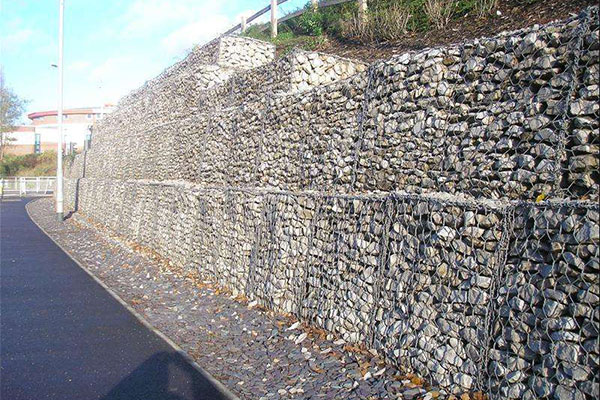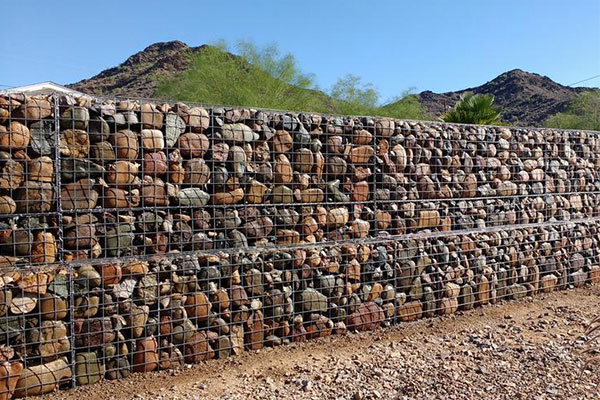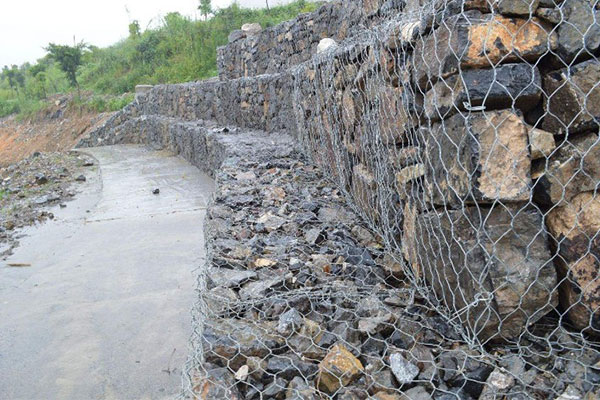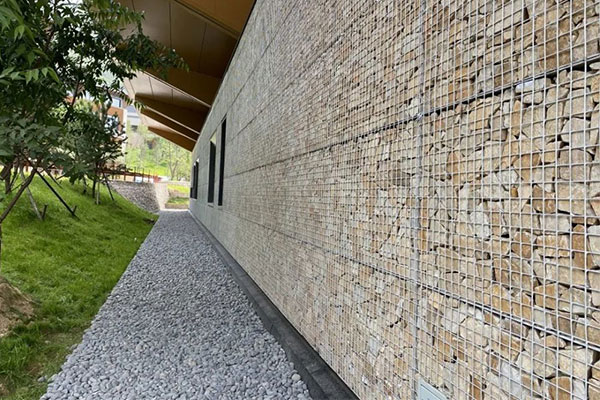What is a Gabion Wall? What You Need to Know
In the realm of landscaping and civil engineering, Gabion walls have gained significant popularity as an innovative and versatile solution for various applications. These structures, made of wire mesh and filled with stones, offer a unique combination of functionality and aesthetic appeal.

What is a Gabion Wall?
A Gabion wall is a retaining or decorative structure constructed by assembling wire mesh baskets and filling them with durable stones or other materials. The term “Gabion” is derived from the Italian word “gabbione,” meaning “big cage,” accurately describing the appearance of these structures. These wire baskets come in various sizes and shapes, allowing for flexibility in design and application.
Construction of Gabion Walls:
Gabion walls are relatively simple to construct, making them a popular choice for a range of projects. The basic construction process involves the following steps:
1. Site Preparation:
Before installation, the site is prepared by clearing debris and creating a level surface. Proper drainage considerations are crucial to ensure the longevity of the Gabion wall.
2. Assembly of Wire Baskets:
Wire mesh baskets, typically made from galvanized steel, are assembled on-site. The size and shape of these baskets depend on the specific requirements of the project.
3. Filling the Baskets:
Once assembled, the baskets are filled with carefully selected stones or other suitable materials. The choice of fill material depends on factors such as structural requirements, aesthetic preferences, and environmental considerations.
4. Closure and Connection:
The filled baskets are securely closed, and adjacent baskets are connected to create a continuous and stable wall. Some projects may require additional reinforcement or connection methods.



Benefits of Gabion Walls:
Gabion walls offer a myriad of benefits, making them a popular choice for a variety of applications:
- Aesthetics: Gabion walls provide a natural and visually appealing solution for both residential and commercial landscaping projects. The combination of stone fill and wire mesh creates a rustic, yet modern, look.
- Flexibility: Gabion walls can be easily adapted to different terrains and project requirements. Their flexibility allows for creative designs and effective solutions in challenging landscapes.
- Erosion Control: In areas prone to erosion, Gabion walls act as effective erosion control measures. They stabilize the soil and prevent the loss of valuable land.
Applications of Gabion Walls:
Gabion walls find applications in various sectors, including:
- Landscaping: In landscaping, Gabion walls are used for decorative purposes, creating visually appealing features like garden walls, benches, or even artistic installations.
- Flood Protection: Gabion walls are employed in flood-prone areas to mitigate the impact of water, providing a protective barrier against erosion and flooding.
- Infrastructure Support: They are used in civil engineering projects to provide structural support and stability to roads, bridges, and other infrastructure.
Conclusion:
Gabion walls have evolved from simple functional structures to elements of design and environmental management. Their adaptability, durability, and aesthetic appeal make them a valuable asset in a variety of projects. Whether used for erosion control, landscaping, or infrastructure support, Gabion walls continue to prove their effectiveness as a sustainable and versatile solution. Consider the benefits of Gabion walls for your next project, and witness the transformation they bring to the landscape.

